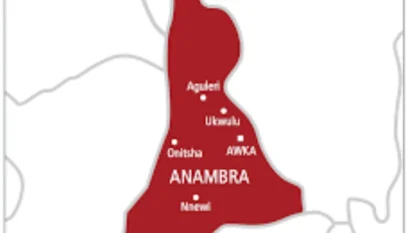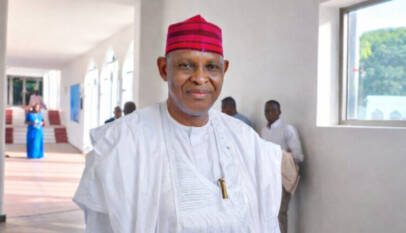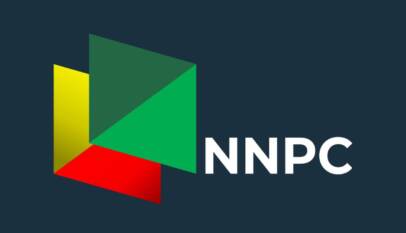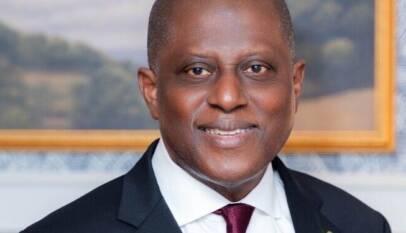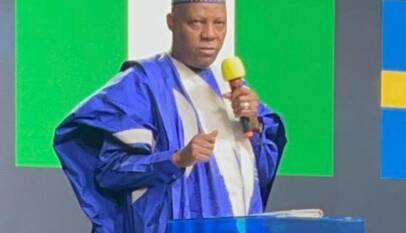As Nigeria enters 2024, all eyes are on the recently unveiled federal budget, a document that not only outlines the government’s spending plans but also serves as a barometer for the nation’s fiscal health and strategic priorities. This year’s budget, themed “Sustainable Economic Growth and Development,” is particularly significant as it comes at a time of considerable economic challenges, including rising inflation, unemployment, and security concerns. The 2024 budget is being scrutinized not just for its numbers, but for the broader implications it carries for Nigeria’s future.
A Budget of Mixed Fortunes
The 2024 budget, totaling NGN 21 trillion (approximately $50 billion), represents a delicate balancing act by the federal government. On one hand, there is an evident push to stimulate economic growth through increased capital expenditure, which accounts for about 30% of the total budget. On the other hand, the budget also reflects the harsh economic realities facing the country, with a significant portion allocated to debt servicing, which is expected to consume around 35% of the total expenditure.
The federal government has earmarked NGN 6.3 trillion for capital projects, signaling a commitment to infrastructure development, particularly in transportation, power, and health sectors. Major projects include the completion of ongoing road constructions, expansion of the rail network, and upgrades to the national grid. These investments are seen as critical to unlocking Nigeria’s economic potential, attracting foreign investment, and creating jobs.
However, the budget also highlights the continuing fiscal pressure from Nigeria’s debt burden. With NGN 7.3 trillion allocated to debt servicing, concerns are mounting about the sustainability of the country’s borrowing. Nigeria’s debt-to-GDP ratio, while still within manageable limits, has been steadily increasing, raising questions about the long-term viability of this fiscal strategy.
Revenue Generation: The Achilles’ Heel
One of the most pressing issues related to the 2024 budget is revenue generation. Despite the ambitious spending plans, the government has struggled to significantly boost its revenue base. The budget projects NGN 10 trillion in revenue, leaving a deficit of NGN 11 trillion to be financed through borrowing.
The government’s revenue assumptions rely heavily on oil, with oil revenues expected to contribute NGN 3.7 trillion. However, this projection is optimistic given the volatile nature of global oil prices and the ongoing challenges in the Niger Delta, where oil production has been hampered by pipeline vandalism and theft. Non-oil revenues, including taxes and customs duties, are expected to bring in NGN 6.3 trillion, but achieving this target will require significant improvements in tax administration and compliance.
The introduction of new revenue-generating measures, such as the proposed excise duties on carbonated drinks and an increase in Value Added Tax (VAT), has been met with mixed reactions. While these measures are necessary to shore up government revenue, they have also sparked concerns about their potential impact on inflation and the cost of living.
Social Spending and Public Welfare
The 2024 budget makes provisions for social spending, with NGN 2 trillion allocated to social investments and welfare programs. Key initiatives include the National Social Investment Program (NSIP), which provides cash transfers to vulnerable households, and the expansion of the National Health Insurance Scheme (NHIS) to cover more Nigerians.
Education and healthcare, critical sectors for national development, receive NGN 1.5 trillion and NGN 1.3 trillion respectively. These allocations, while higher than previous years, still fall short of the recommended benchmarks by international organizations. The underfunding of education and healthcare has long been a point of contention in Nigeria, where many schools and hospitals lack basic infrastructure and resources.
Despite the government’s efforts to address these issues, critics argue that the budget does not go far enough to tackle the root causes of poverty and inequality. They point to the need for more comprehensive social policies that go beyond short-term welfare programs and focus on structural reforms to improve access to quality education, healthcare, and social services.
Security: A Significant Burden
In a country grappling with multiple security challenges, it is no surprise that the 2024 budget allocates a substantial amount to defense and security. NGN 3 trillion has been set aside for security, a reflection of the government’s determination to address the rising threats from insurgency, banditry, and communal violence.
The bulk of this allocation will go towards equipping the military and police forces, as well as funding intelligence and counter-terrorism operations. However, there is growing concern that despite the huge sums spent on security over the years, the situation on the ground has not improved significantly. Critics argue that without addressing the underlying socio-economic conditions that fuel insecurity, such as poverty, unemployment, and poor governance, increased spending on security alone will not bring about lasting peace.
Debt Sustainability and Economic Risks
One of the most debated aspects of the 2024 budget is the level of borrowing required to finance the deficit. The government plans to borrow NGN 11 trillion, raising concerns about Nigeria’s debt sustainability. The International Monetary Fund (IMF) and other financial institutions have warned that Nigeria’s rising debt levels could pose significant risks to its economic stability, especially if global economic conditions deteriorate or if oil prices fall.
The government has defended its borrowing plan, arguing that the funds are necessary to finance critical infrastructure projects that will drive long-term economic growth. However, with debt servicing already taking up a large chunk of the budget, there are fears that Nigeria could be heading towards a debt trap, where borrowing costs consume an increasing share of government revenue, leaving little room for other essential expenditures.
Conclusion: A Budget of Tough Choices
The 2024 budget is a testament to the tough choices facing Nigeria’s government as it seeks to balance the need for economic growth with the realities of fiscal constraints. While the budget outlines ambitious plans for infrastructure development and social spending, it also highlights the challenges of revenue generation, debt sustainability, and effective implementation.
As the budget moves through the legislative process, it will likely face further scrutiny and possible amendments. The coming months will be critical as the government works to implement its plans and deliver on its promises. The success of the 2024 budget will ultimately depend on the government’s ability to navigate these challenges, maintain fiscal discipline, and prioritize the needs of the Nigerian people.


